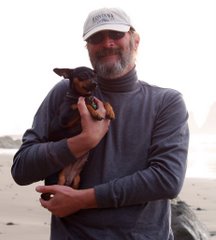Everyone who knows me knows that I read. Voraciously. Given my druthers, I’d spend my time reading over doing almost anything else. When Gary and I packed for a month-long trip to Turkey back in 2000, the hardest question to answer was “How will we pack enough books to last the month?” The answer turned out to be visiting the Montana Valley Bookstore in Alberton, Montana, and filling a suitcase with inexpensive used paperbacks—books we could read then leave in the various hotel rooms we visited from Istanbul to Nevşehir, This worked well as we were able to refill the emptying suitcase with souvenirs of our travels.
In December, one of my readers asked if I was reading a book a day, and I replied that normally I do just that. January, however, has brought shortened reading (and writing) time as I have worked to get a new business off the ground. (Of which more later.) One of the books I have read this month may well be one of the most important books I’ve ever read.
Three Cups of Tea: One Man’s Mission to Promote Peace … One School at a Time tells the story of how Greg Mortenson and his mountain-climbing friends came to be the main non-Saudi builder of schools in northern Pakistan. Non-Saudi, you say? In Pakistan? Yes, indeed, and now in Afghanistan as well.
Education is something that most Americans take for granted. We may not like our public school systems, but few Americans would accept having no schools in our towns. That absence, however, is the norm in vast areas around the world, especially in what we euphemistically refer to as the developing countries. Pakistan is one such country.
In September, 1993, Greg Mortenson almost lost his life. Working with a team trying to climb K2 in the far north of Pakistan, Mortenson got separated from his fellow climbers, took a wrong turn coming down the glacier at the foot of the mountain, and ended up spending the night alone without any of the gear being carried by his porter. Becoming aware of his mistake, he retraced his steps and eventually found the main trail (and his porter) the next day, but later on, once more took a wrong turn—this time ending up in the wrong village.
The Bible teaches that he who will save his life must first lose it. (Mark 8:35) This is certainly the case of Greg Mortenson. A dedicated mountain-climber, living frugally in Berkeley, California, saving every possible cent for the next climb, Mortenson’s inadvertent side-trip to the village of Korphe changed his life forever. Recovering from his ordeal on K2 and the Baltoro Glacier, Mortenson watched children so eager for knowledge that they crouched outside in the snow and wind, scratching exercises in the dirt. They had no school building, and no full-time teacher. Government educational funds didn’t make it this far from Islamabad, the nation’s capitol. Mortenson vowed to repay the people who had nursed him back to health by building a school. He had no idea what he was getting into.
Three Cups of Tea tells Mortenson’s story from that failed attempt on K2 to meeting with a tribal leader in northern Afghanistan while the US was trying to drive the Taliban out of the country. It tells of the fifty-five schools Mortenson and his Central Asia Institute have built in the two countries, and it details some (surely not all) of the challenges he has faced in doing so. The book is as gripping as any thriller on the shelves. I laughed, I cried, I held my breath wondering just how Mortenson was going to escape the Taliban, or would he be able to leave Pakistan in the aftermath of September 11th.
One of the book’s chapters is titled, “The Enemy is Ignorance.” Much the same as Lederer and Burdick’s hero, The Ugly American, Mortenson has proven that one person can make a difference. At this point, his only competition in the school-building game is the Wahhabi sect of Saudi Arabia—the same folk who gave us Osama bin Laden and the Taliban. Saudi money, which is to say the money you have paid to fill the tanks in your pickups and SUVs, is building schools that teach religious intolerance and hatred for America. These schools, known as Madrassas, accept only boys—boys who too often learn to strap bombs to their bodies and die in the holy war against western values. Mortenson’s schools are co-educational, and no one who has been involved in the building of these schools hates America.
One of Mortenson’s benefactors, the late Jean Hörni, helped Mortenson set up the Central Asia Institute in Bozeman, Montana. Having read Three Cups of Tea, I have added that foundation to my list of most favored charities. You can learn more about the Institute by going to the website www.threecupsoftea.com Instead of buying the book through my Amazon portal, buy it through theirs. Of course, anything else you want from Amazon.com, you can buy through my portals.
In The Lexus and the Olive Tree, Thomas Friedman spoke of how we are moving into an era where “super-empowered individuals” can and do play roles as important as any super-power or super-market. In the first chapter of his book on globalization, he writes:
The third balance that you have to pay attention to in the globalization system -- the one that is really the newest of all is the balance between individuals and nation-states. Because globalization has brought down many of the walls that limited the movement and reach of people, and because it has simultaneously wired the world into networks, it gives more power to individuals to influence both markets and nation-states than at any time in history. So you have today not only a superpower, not only Supermarkets, but, as I will also demonstrate later in the book, you have Super-empowered individuals. Some of these Super-empowered individuals are quite angry, some of them quite wonderful -- but all of them are now able to act directly on the world stage without the traditional mediation of governments, corporations or any other public or private institutions.
Friedman’s prime example of a “super-empowered individual” is Osama bin Laden. I would maintain that Greg Mortenson is another example. In today’s New York Times (Sunday, January 27, 2008) Nicholas Kristof’s op-ed piece, The Age of Ambition, talks of how young people are working to make the world a better place. He calls these “social entrepreneurs,” and mentions Andrew Klaber who started Orphans Against AIDS. He also mentions Jennifer Staple, founder of Unite for Sight, and Soraya Salti who is teaching entrepreneurship through her organization, Injaz, in her native Jordan and eleven other Arab countries. Ms. Salti’s programs are designed for women as well as men. Kristof says “My hunch is that Ms. Salti will contribute more to stability and peace in the Middle East than any number of tanks in Iraq, U.N. resolutions or summit meetings.”
Reading Three Cups of Tea gave me hope. We may still be able to bring peace on earth … one school at a time. And just so you know, When you are doing business in Central Asia, you will be expected to drink tea. With the first cup, you are a stranger. With the second, you become a friend; and with the third, a member of the family.
P.S. If you should go to the movies to see Juno (personally I think I’ll wait for Netflix to bring it to me), pay special attention to the actor playing Juno’s father, Mac MacGuff. One of the few Hollywood celebrities I can claim to know personally, J.K. Simmons is one terrific actor. While most of my friends probably know him best as Schillinger, the neo-nazi leader in the HBO series OZ, Kim (as I know him) stays in my mind as the best El Gallo I’ve seen (and I’ve seen some fifteen different productions of The Fantasticks). He was also terrific as the overbearing Carl-Magnus in the Bigfork (MT) Summer Theatre’s production of A Little Night Music. J.K. Simmons is the son of Donald Simmons, retired Assistant Dean of Fine Arts and Chair of the Music Department at The University of Montana, and Pat Simmons, former head of the Missoula Downtown Association.
Pic of the Day
4 hours ago



